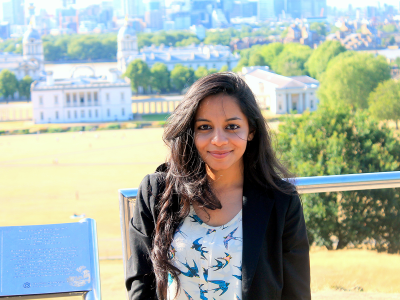What encouraged you to pursue a degree in Intellectual Property Law at UCL Laws?
I chose to study a LLM in Intellectual Property Law at UCL because of its excellent Law Faculty and its long, glorious history.
What is your current role?
I currently head legal and business affairs for a media company.
What advice would you give to prospective or current students at UCL?
My advice to students would be: UCL offers more opportunities than you can imagine, so make the best use of your time there. Go beyond just the modules you've chosen and utilise the vast resources including the libraries and Faculty facilities. Your student experience should extend beyond classroom learning; be part of something that gives you a holistic, wider world-view and prepares you for challenges in the workplace, all while giving back to the larger community in general.
What kind of activities outside the classroom would you encourage students to get involved in?
I would also advise students to take part in projects and societies that are working towards making an impact, including pro bono opportunities. For example, one of my best experiences at UCL Laws was volunteering with the Grassroots Human Rights Project through the UCL Centre for Access to Justice. I've always been part of various organisations in a volunteering capacity, which I believe is key to an individual's growth. It also gives you the opportunity to develop qualities such as leadership, effective communication skills, teamwork, patience and crisis management.
Could you tell us a little bit more about the Grassroots Human Rights Project, and why you got involved?
The purpose of the Grassroots Human Rights Project was to impart basic human rights education to adolescent children studying in schools that were located in areas with generally higher levels of deprivation. The purpose of the project was not only to create a better understanding of human rights both in history and practice, but also to give them an opportunity to engage with university students, raising aspirations.
The reason I wanted to volunteer with this Project in particular was the intent and the vision behind the Project, which seemed so fundamental and yet so unique.
What was the most rewarding aspect of being part of the Project?
It is one of my best memories at UCL as I felt that we were giving back to the community in ways that would result in long-term change for the better. I gained a lot from the Project - it gave me a sense of definitive purpose outside of my regular studies. Both the students and the volunteers were from a range of backgrounds, and interaction with such a diverse group of people often results in one becoming more and understanding of cultural differences. The Project also helped me communicate effectively on delicate matters.
How has volunteering in pro bono projects helped you in your career?
I currently work in the corporate field, which is a very different environment to the pro bono projects I was part of. However, the skills I learned have been really useful in building trust between myself and the clients, which often helps me to close business deals and agreements more effectively.
 Close
Close


